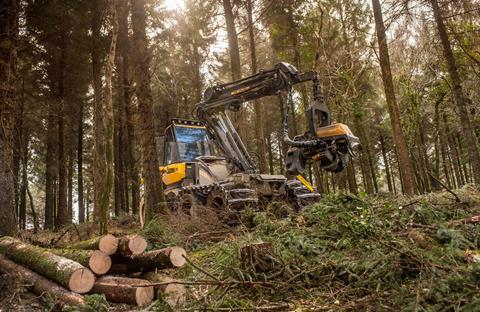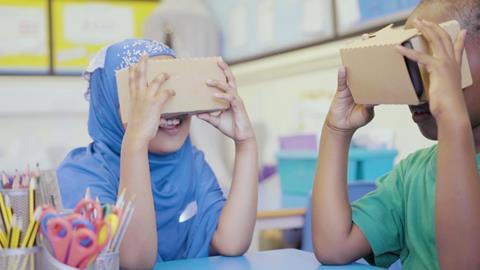Teachers can bring learning away experiences into the classroom with some of these fantastic virtual visits.
1. Inspire the next generation of forest workers
The Forestry Commission is offering virtual tours of working forests with the help of Google Expeditions, providing pupils with 360 degree views on a mobile or tablet device, heightened by a virtual reality headset. The expeditions allow pupils to visit a tree nursery to find out which species could make up forests in the future as well as other aspects including machines used in forestry, different habitats and the importance of trees in the face of climate change.

One teacher, Gen Ellison-Smith of Hannah Moore Primary School in Bristol who previously tried the experience with her Year 2 class, said: “The students absolutely loved using the virtual reality headsets and learning all about the forest. After the class, they wouldn’t stop talking about the different jobs they wanted to have.”
2. Step in the footsteps of politicians
To discover exactly how it feels to be a member of Parliament, pupils can be led on a virtual tour of UK Parliament, stopping off at different points to help them understand the job of the House of Commons and House of Lords.
They’ll receive expanations about important features in the two houses and can admire the historic beauty of the Palace of Westminster without having to leave the classroom. Another option is the Women in Parliament virtual tour, which draws on research and content from the 2018 exhibition Voice and Vote. Teaching resources are also available.
3. Virtually explore the past
For an exclusive look around one of London’s most iconic landmarks, teachers can opt for a virtual tour around Westminster Abbey. The useful tool on the website means teachers can take classes around the abbey with clickable points throughout the virtual tour which explain further in detail key things to look out for.

There are five different themed tours to choose from and other teaching resources available. Or, for an even more exclusive experience, one of the Abbey’s learning officers can join the class via a live skype call which lasts for 30 to 40 minutes. The interactive video conference includes themes of worship, coronations, remembrance, Edward the Confessor and Tudors at the Abbey.
4. Bring history to life
With the help of Samsung, the British Museum is able to help pupils with two interactive sessions. The Roman Britain treasure challenge helps students learn about life in the era as well as the challenges faced by professional archaeologists, scientists and historians who work with treasure. Or, children can learn about the everyday life, technology and trade of the Indus people using quizzes, challenges, and 3D scanned objects from the British Museum’s collection.
Both sessions require access to digital technology which is readily available in most schools and must be pre-booked so the museum can organise a test call. The sessions are suitable for Key Stage 2 and last around 90 minutes.
More to share with teachers? Tell us about the virtual tours you have experienced by emailing editorial@schooltravelorganiser.com











